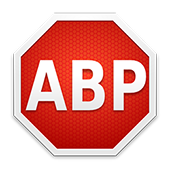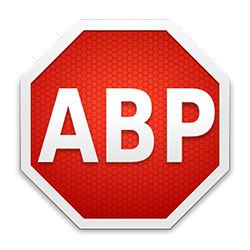
The two publishers – Zeit Online and Handelsblatt – had asked a Hamburg court for injunctive relief, saying the popular web extension – downloaded over 50 million times – was anti-competitive and hampered their ability to make money via three websites: Zeit.de, Handelsblatt.com, and Wiwo.de.
However, at the conclusion of the trial, the regional court ruled in favour of AdBlock Plus, as confirmed by project manager Ben Williams on the company’s blog:
Today, after a four-month trial, reasonable heads prevailed as the regional court in Hamburg ruled in our favor by declaring that ad blocking is, in fact, perfectly legal.
Both Zeit Online and Handelsblatt vowed to continue to battle against AdBlock Plus, issuing a joint statement saying they remain convinced that the software is illegal and that it infringes press freedoms.
According to the BBC, the pair are awaiting a written copy of the judgement before they assess whether or not an appeal would be likely to succeed.
The publishers had sought financial relief as well as an end to ad blocking on their own web properties, but also wished to challenge Eyeo’s business model as a whole.
Anticipating the potential for further lawsuits in other jurisdictions, Williams claimed the German ruling could prove significant:
The Hamburg court decision is an important one because it sets a precedent that may help us avoid additional lawsuits and expenses defending what we feel is an obvious consumer right: giving people the ability to control their own screens by letting them block annoying ads and protect their privacy.
Looking further ahead, Williams said the aim of AdBlock Plus was to work with both publishers and advertisers to:
Develop new forms of non-intrusive ads that are actually useful and welcomed by users; let’s discover ways to make better ads.
The company offers its ad-blocking extension to users free of charge, making its money from what it calls a “white list” of approved advertisers whose adverts are in fact displayed.
Advertisers wishing to gain entry to the white list must follow a strict set of rules which essentially demand that adverts must be non-intrusive and not annoying. The company’s acceptable ads guidelines indicate that inclusion cannot be bought:
No applicant will be favored or treated differently, and no one can buy their way onto the whitelist. Everyone has to comply with the criteria and everyone has to go through the same process before the ads qualify as acceptable.
However, the company does offer “support services” to larger companies in return for an unspecified fee, reportedly equivalent to 30% of the value of the enabled ads.
Such a business model has led to a degree of criticism for ad blocking services in general with one site asking ad blocking is theft and another going as far as asking whether AdBlock Plus is running some sort of “racket“.
Speaking to the BBC, Williams dismissed the latter claim, saying that:
If we are racketeers we are terrible racketeers because 90% of the people on the white list don't pay anything and the criteria is the same for everyone.

